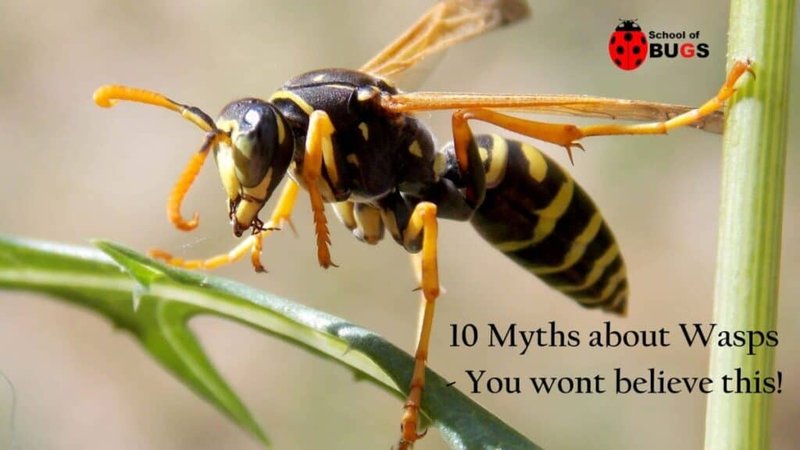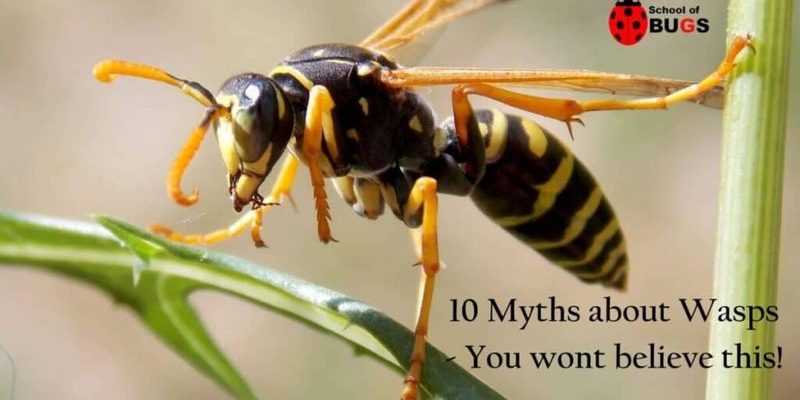
Think of wasps as the misunderstood characters in a book. Just because they have a sting doesn’t mean they’re all bad. In reality, they play essential roles in our ecosystem—like natural pest controllers and pollinators. However, these benefits often get overshadowed by common misconceptions. Let’s dig into some of the most prevalent myths about wasps and shine a light on the truth.
Myth 1: All Wasps Are Aggressive
You might think that all wasps have a nasty temperament, ready to dive-bomb anyone who gets too close. Honestly, that’s just not true! Most wasps are quite docile and only sting when they feel threatened. In fact, many species, like the paper wasp, are more interested in going about their day, hunting for insects or gathering plant materials for their nests.
It’s important to note that wasps are not like bees. While bees usually only sting when provoked and die afterward, many wasps can sting multiple times. This ability might paint them as aggressive, but it’s more about self-defense than a desire to attack. If you see wasps flying around, they’re typically just going about their business, not plotting an ambush.
Understanding Wasp Behavior
So, what triggers a wasp to sting? Generally, it’s a perceived threat. If you swat at them or get too close to their nests, they might react defensively. Here’s where understanding their behavior comes in handy. If you respect their space, they’re likely to ignore you. Just think of them like a grumpy neighbor who doesn’t want you mowing your lawn too close to their fence.
Myth 2: Wasps Only Eat Sugary Foods
You might be wondering if wasps are like the sweet-toothed relatives of the insect world. While it’s true that many wasps enjoy sugary substances—like the leftover soda from your backyard barbecue—they’re actually carnivorous for the most part. Wasps are fantastic hunters, feeding on other insects such as caterpillars and spiders to nourish their young.
This insect-eating behavior is one reason they can be beneficial to gardens. By keeping the population of unwanted pests down, they help your plants thrive. So next time you see a wasp hovering around your fruit, don’t assume it’s just after dessert. It might be on the lookout for a meal to take back to its nest!
Diverse Diet of Wasps
If you want to appreciate wasps even more, think about their varied diet. They’re versatile eaters, switching between sugary foods and protein-rich insects depending on what’s available. This adaptability allows them to thrive in different environments. So, whether they’re munching on nectar or hunting for their next meal, they’re constantly contributing to the ecosystem’s balance.
Myth 3: Wasps Die After Stinging
You may have heard that wasps die after they sting. While it’s true this happens with honeybees, *wasps are a different story*. They can sting multiple times without suffering any fatal consequences. This is because their stinger is smooth and not barbed like a bee’s. So, when a wasp stings, it can pull away and sting again if it feels the need to defend itself.
This myth plays a part in why people often overreact when they see wasps. Understanding that they can survive stings might ease some fears. Just remember, their first instinct is self-preservation, not seeking revenge.
What Happens After a Wasp Stings?
After a sting, wasps release a pheromone that alerts other wasps nearby to potential danger. This could increase the chances of getting stung further if people panic and start swatting. Instead, staying calm and backing away slowly can help you avoid an unpleasant encounter.
Myth 4: Wasps Serve No Purpose
Here’s the thing: many people believe that wasps are just pesky creatures with no real purpose. But in reality, they play vital roles in our ecosystem. Wasps are excellent pollinators, which is crucial for plant reproduction. Without them, many plants—including the ones that produce fruits and vegetables—would struggle to thrive.
In addition to pollination, wasps keep pest populations under control. They regulate the numbers of harmful insects, making them nature’s pest control agents. By doing so, they help maintain a healthy balance in the ecosystem, which benefits us all.
The Benefits of Wasps
Consider this: when you see a wasp hovering by your flowers, it’s not just a nuisance. It’s helping to create the fruits and vegetables you enjoy daily. So rather than viewing wasps as the enemy, think of them as partners in maintaining the beauty and health of our environment.
Myth 5: Yellow Jackets Are Just Bad Wasps
When people talk about wasps, they often mention yellow jackets as the troublemakers. While it’s true that yellow jackets can be aggressive, it’s important not to paint all wasps with the same brush. Yellow jackets are just one group of wasps, and they’re notorious for raiding picnics and trash cans for food.
However, labeling them as “bad wasps” overlooks their ecological contributions. Like other wasps, yellow jackets prey on insects and serve as pollinators. Plus, they help with the decomposition process by feeding on decaying matter.
Recognizing Different Wasp Species
Did you know there are over 30,000 species of wasps? It can be helpful to learn how to differentiate between them. Some are beneficial while others, like yellow jackets, can be more aggressive. By understanding the differences, you can better appreciate their roles and avoid unnecessary fear.
So there you have it! The next time you see a wasp, remember the truths behind these common myths. They’re not all aggressive, they play essential roles in our ecosystem, and many of them can sting without dying.
As we learn more about these fascinating creatures, we can change the way we think about them. Instead of fear, let’s embrace the understanding that wasps—like the misunderstood heroes they are—contribute to the delicate balance of nature. Who knows? You might just learn to love them a little more!

